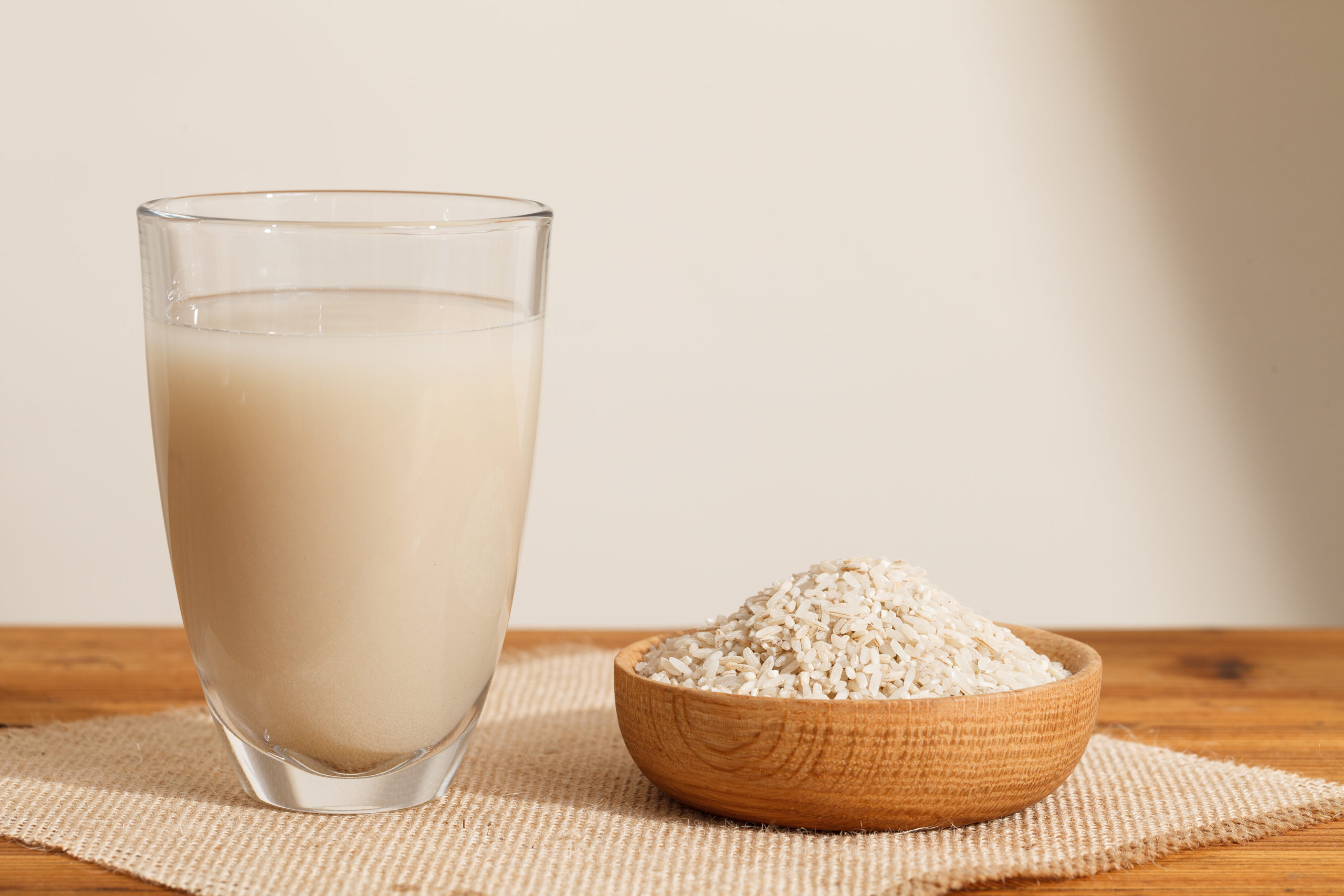Rice water is a natural and cost-efficient fertilizer that can easily be produced by cooking rice. It is proven to be an efficient mild fertilizer for plants because its contents, such as potassium, nitrogen, phosphorus, and starch, help soil bacteria produce more nutrients in the soil, increasing its fertility.
Rice Water has proved itself to be an excellent fertilizer. A washed rice contains approximately: 41% potassium, 30% crude fiber, 7% protein, 15% free amino acids, 47% phosphorus, 25% calcium, 47% iron, 11% zinc, 59% thiamine, 26% riboflavin, and 60% niacin. More effective than NPK fertilizer for plant growth.
Rice Water As Fertilizer
You probably have already heard about the benefits of rice water in skincare, as it is scientifically proven to rejuvenate the skin.
In gardening, many are sceptical about rice water being a good fertilizer since it is not quite popular with the public. However, studies have shown that rice water is, in fact, more effective than NPK fertilizer in promoting plant growth.
A washed rice contains approximately the following: 41% potassium, 30% crude fiber, 7% protein, 15% free amino acids, 47% phosphorus, 25% calcium, 47% iron, 11% zinc, 59% thiamine, 26% riboflavin, and 60% niacin.
When rice is washed, it transfers some of its nutrients and vitamins to the water. Hence, rice water carries essential nutrients that are a good source of fertilizer for plants.
Lactobacillus is a genus of bacteria primarily found in soil. The starch-containing rice water aids these lactobacilli in soils to promote decomposition of organic matter and induces growth-regulatory effects on mycorrhizae.
The latter is a good fungus that feeds plant roots, making them healthier and immune to diseases.
By using rice water as fertilizer, plant roots become healthier, which makes the entire plant healthy too.
How To Make Rice Water
Rice water is simply just a byproduct of cooking rice. Usually, if you are not aware of its benefits to skincare or gardening, you would only dispose of it down the sink as it is useless to you. But for people who are into gardening, rice water is a precious fertilizer that helps accelerate the growth of their plants.
You can produce rice water by rinsing, soaking, and boiling. In rinsing, rice water is obtained by washing the rice for 2-3 minutes. In soaking, leave the rice to soak for 30-45 minutes. In boiling, you have to use heat and allow to boil for 30-45 minutes.
The rice water produced through boiling can be too thick, which is why you need to add water to it to thin it down.
According to other sources, the rice water from boiling contains more nutrients than rinsing and soaking because the heat used in boiling is more effective in transferring nutrients to the water.
How To Use Rice Water As Fertilizer On Plants
1. Prepare a clean, germ-free container for the rice water.
2. Soak rice in water for five minutes or more.
3. Transfer the rice water to the container. Fill more than half of the container with it.
4. Cover the container with a cotton cloth to make sure that air passes through it. Place it outside but do not leave it exposed to sunlight. The goal is to preserve it for two days to let bacteria grow.
5. After two days, transfer the fermented rice water into a new container. Put one part rice water and nine parts milk into the container and cover it with a cotton cloth. Place it again outside but away from the sunlight for five to seven days.
6. After five to seven days, take the liquid (lactobacilli) from the container and finally seal it so that no air can pass through. Store this liquid as this is already your fertilizer.
7. One tablespoon of lactobacilli, mixed with one gallon of water is the suggested combination for your fertilizer. Apply an appropriate amount of it to your plant’s soil every day to fertilize its soil.
How Rice Water Nutrients Benefit The Plants
As previously stated, rice water contains beneficial nutrients that contribute to the accelerating growth and biomass yield of plants. Some nutrients mentioned were carbohydrates, nitrogen, phosphorus, and potassium.
• Carbohydrates. Bacteria flourish when large amounts of carbohydrates are present. These sugars enable bacteria to break down organic matter into simpler forms that are readily available for the plants to consume.
• Nitrogen. Rice water increases the nitrogen content of the soil. This is important because it will enable soil bacteria to fix more nitrogen and supply the plants with it as plants themselves cannot produce nitrogen independently.
Nitrogen is important for plants because it is a basic requirement to biosynthesize basic building blocks of plants such as nucleotides.
• Phosphorus. Several functions of phosphorus include energy transfer, photosynthesis, nutrient movement, and others. Rice water increases the content of phosphorus in a plant which further accelerates its functions in it
• Potassium. When potassium content increases in plants, cell reproduction, and protein synthesis are enhanced, thereby stimulating plant growth.
The Advantages Of Using Rice Water As Fertilizer
• Cost-effective. Rice water is basically just waste materials you produce from cooking rice. Hence, you do not need to spend money on buying fertilizers for your plant.
• Easy to use and a good fertilizer. The process of fermenting the rice water is easy to follow. Once the fermentation is complete, it can be readily used as a good fertilizer for your plants.
• Environment-friendly. Rice water is a good alternative for organic and chemical fertilizers. Aside from preventing air pollution, you can also reuse the waste material (rice water) you have at home.
• Prevents burns and toxicity to skin and respiratory system associated with the use of inorganic fertilizers
• Can be used as pest control
• Encourages healthy bacterial growth in soil
• Accelerates plant growth and increases fruit and crop production
Rice Water As Pesticide
Aside from being a good natural fertilizer, rice water is also an effective pesticide. Pests like fruit flies usually attack vegetables. In this case, rice water can be used to sprinkle over these plants to eliminate them.
Fermented rice water produces a very strong sour odor and irritates garden pests like gnats, fleas, beetles, and aphids. The rice water can be used as a water trap or a spray to ward off these pests.
Plants That Do Well In A Rice Water Fertilizer
Various plants show good results in rice water fertilizer. These plants include roses, money plants, tomatoes, chili, succulents, and other indoor and garden plants.
The additional NPK (nitrogen, phosphorus, potassium) content that rice water provides enables these plants to boost their growth because of the enriched soil.
There is an appropriate watering method in applying rice water fertilizer depending on the plant.
Succulents, for example, prefer misting method since they are small and do not require much water. You only need to spray a small amount of rice water on its topsoil.
Garden plants usually prefer top watering while with indoor plants, both top and bottom watering can be used. You also have to ensure that you use just the right amount of rice water to your plant to prevent overwatering.
In case you use boiled rice water, let it cool down first before pouring it into the plant.
Steps In Watering Plants Using Rice Water
1. Misting
A spray bottle is commonly used in misting. Prepare a clean one and pour your rice water into it.
Make sure that the rice water is not thick so that it can be easily dispelled when sprayed. Add water in it to thin it down if in case it is too thick.
As previously mentioned, misting method works well for succulents. Spray and mist the top and underside of the succulent leaves then spray its topsoil.
2. Bottom Watering
This method is an effective way to prevent a plant from getting overwatered. All you need to do is prepare a flat container that is a little bit wider than your plant pot. Put water in the container; the water should reach 1 ½ inches high.
Place your pot in the container and let it sit there for 15 to 20 minutes. Check the topsoil if it is already moist enough and then remove the pot.
3. Top Watering
This is the most common among watering methods. You simply have to sprinkle the plant with rice water from the top. This method is mostly applied to garden plants.
Final Thoughts
Rice water is proven to be a good fertilizer since it boosts plant growth and increases crop yield. On top of this, rice water is easy to produce since it is commonly just a waste material from cooking rice.
You should think about shifting to rice water from organic or inorganic fertilizer to save money and to prevent additional air and water pollutants.
The only thing you have to be cautious about in using rice water is that it can sometimes overwater the plant when you are not careful about the amount of water you pour into the plant.
Other than this, rice water is an excellent alternative to other fertilizers. It can enrich the soil, thereby making your plant healthy and free of diseases.
Another bonus advantage of rice water is that it can be used as a pesticide to ward off unwanted pests in your plants.
The next time you cook rice, try to save and ferment the rice water instead of just pouring it down the drain. With this, you can boost your plant’s health in a very convenient way.
Jenny Marie
Tribal Writer
Edited By
Patricia Godwin

